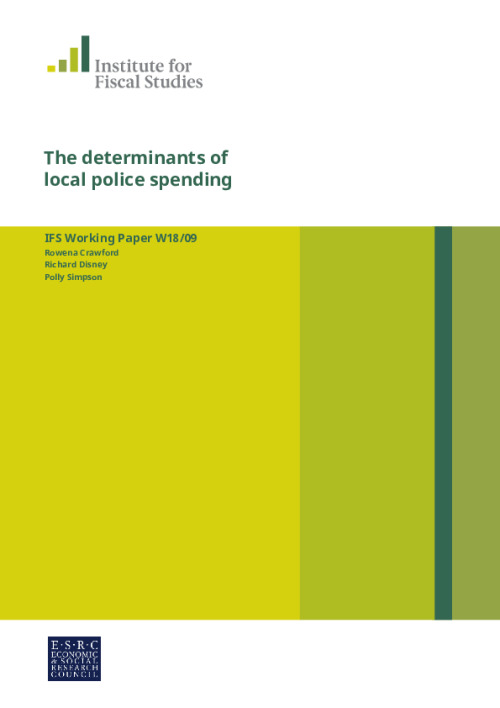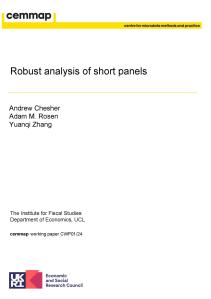Downloads

WP201809.pdf
PDF | 497.83 KB
Since 1995, police forces in England and Wales have obtained the right to raise revenues locally to supplement central government grants in order to fund their activities. The extent to which they have used these local revenue-raising powers varies signi cantly across area and time. We seek to explain this variation in locally raised police revenues over the 2000s, unpicking the role of local differences in preferences, central government funding, the production of public safety given police inputs, and certain political economy features of the local decision making process. We find that around three-quarters of the variation in local revenues per capita can be explained by differences in incomes, prices and preferences. We also examine whether changes in service provision by other agencies spillover into the local demand for policing by affecting the local tax price of police activities.
Authors

Research Associate University of Sussex
Richard is an IFS Research Associate, a Part-time Professor of Economics at the University of Sussex and a Visiting Professor of Economics at UCL.

Rowena Crawford

Polly Simpson
Working Paper details
- DOI
- 10.1920/wp.ifs.2018.W1809
- Publisher
- The IFS
Suggested citation
R, Crawford and R, Disney and P, Simpson. (2018). The determinants of local police spending. London: The IFS. Available at: https://ifs.org.uk/publications/determinants-local-police-spending-0 (accessed: 5 May 2024).
More from IFS
Understand this issue

Gender norms, violence and adolescent girls’ trajectories: Evidence from India
24 October 2022

Empty defence spending promises are a shot in the dark
29 April 2024

Public investment: what you need to know
25 April 2024
Policy analysis

IFS Deputy Director Carl Emmerson appointed to the UK Statistics Authority Methodological Assurance Review Panel
14 April 2023

ABC of SV: Limited Information Likelihood Inference in Stochastic Volatility Jump-Diffusion Models
We develop novel methods for estimation and filtering of continuous-time models with stochastic volatility and jumps using so-called Approximate Bayesian Compu- tation which build likelihoods based on limited information.
12 August 2014

Is there really an NHS productivity crisis?
17 November 2023
Academic research

Sample composition and representativeness on Understanding Society
2 February 2024

Understanding Society: minimising selection biases in data collection using mobile apps
2 February 2024

Robust analysis of short panels
8 January 2024